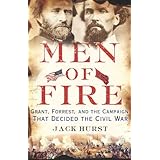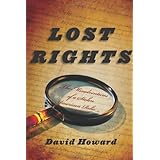
Average Reviews:

(More customer reviews)The Age of Lincoln" by Dr. Orville Vernon Burton is an insightful , hard headed , clear eyed look at the roots of the American Civil War , the path that led to eventual victory and the utter failure of Lincoln's successors to "win" the peace as decisively as he had won the war. This book is a stunning feat of original thinking, scholarship, and research. The depth and the breadth of the research is revealed in the many details of what was taking place in the political , social , religious and economic strata of American life during this tumultuous time. The weaving of these disparate elements into a cogent tapestry is a testament to Dr. Burton's scholarship. Dr. Burton's mastery of his voluminous research and his skill in writing a riveting narrative only enhances his standing as an American historian of the first order.
As Dr Burton shows the "original sin" of our founding fathers to face the question of slavery as a blot on the face of humanity in "The Declaration of Independence" and ""The Constitution" sowed the seeds that produced the bloody harvest of the Southern Rebellion. The evolution of President Lincoln's thinking of "The Emancipation Proclamation" as a strategic war maneuver to an act of basic humanity reflects Lincoln's antipathy towards slavery and his changing feelings on the equality of the races. While Lincoln was still evolving in his recognition of the equality of African Americans to the white's of America his legacy of the 13th, 14th, and 15th amendments to the Constitution ultimately redeemed the promise of the founding fathers.
Dr. Burton's book illustrates that just as slavery's darkest shadow lays across the trinity of our most precious documents, the Declaration of Independence, The Constitution and the Bill of Rights Bill for almost a hundred years, the dark shadow of the Jim Crow era would eclipse the bright promise of Lincoln's legacy to mankind the 13th, 14th and15th amendment of the Constitution. Because of Lincoln's successors failures to stay the course with Reconstruction and the ultimate perversions of the Restoration and the Jim Crow era another hundred years of lynching, murder, degradation, economic slavery and forced migration faced African Americans most egregiously in the American south.
Dr. Burton's book also pounds the stake into the heart of the argument of the Civil War being fought over any thing but slavery. Over shadowing and intruding into all aspects of life during the arc of the age of Lincoln was slavery,slavery.slavery. This book resonates with the passion that the American public had for public affairs during "The Age of Lincoln." This passion for the governance of their affairs was an on going concern not just a concern during the election cycles. This book could serve as a cautionary tale. The American public could do well to see past the "Roman Circus's" of sports , celebrity pap, unreal reality shows, egocentric pursuits of "me" and reevaluate some of the basic values so wisely enumerated in "The Age of Lincoln".
"The Age of Lincoln" is a very important book that would be a rewarding reading experience for anyone.
Click Here to see more reviews about: The Age of Lincoln




